How to Manage Taxes for Bitcoin (US Edition)
It really is true, there are only two constants in the universe — death and taxes. Unfortunately, not even Bitcoin can escape taxes…

How to Manage Taxes for Bitcoin (US Edition)
It really is true, there are only two constants in the universe — death and taxes. Unfortunately, not even bitcoin can escape taxes. Governments are moving to crack down on those who aren’t paying their taxes for the Bitcoin. to make sure you don’t get the IRS knocking on your door, its a good idea to properly report and pay up.
But how do you do it? This guide will show what kind of taxes you might have to pay, and many tools that exist to help make taxes easier
The first question is, what taxes do you have to pay? Essentially all users or holders of Bitcoin will have to report, if not pay, some kind of Capital Gains Tax. Capital Gains is a tax normally levied against things like stocks, it taxes you based on the income you received from when you first received the item versus when you sold it. For example, if you purchased a Bitcoin at $5000, but sold it at $20000, your gains would be the difference between 5K and 20K (i.e. $15K). That is the part that is taxable.
How much that amount is taxed depends on how long you’ve held your Bitcoin, and how much total income you have. Any Bitcoin sold within a year of purchasing is taxed as normal income, so that depends on your tax bracket:
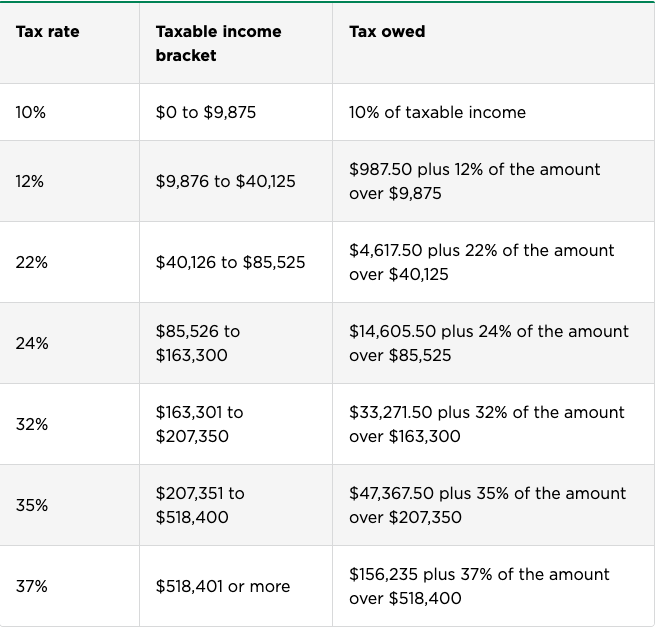
However, the rate is much lower if you hold the Bitcoin for over a year. Although this is again based on your total income, the rates are much lower:
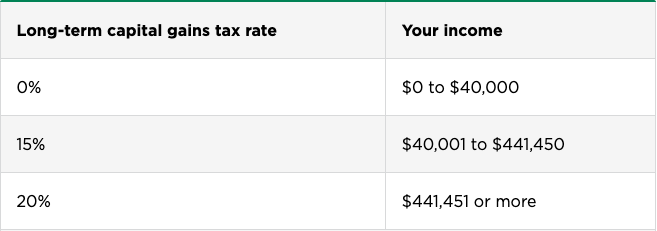
Therefore it is recommended you hold onto that Bitcoin!
It should be noted that Capital Gains applies anytime you get rid of any Bitcoin, this includes buying a good or service. This means its a good idea to keep a record or receipts of transactions you performed in Bitcoin, you can be taxed for it.
Additionally, if you receive any Bitcoin as income for a job, or good or service. That must be reported as income, and you will be taxed based on the income bracket. Unfortunately, this means you are double taxed for Bitcoin if you receive it as income rather than buying it directly (thanks backwards US tax system!)
The next question is, how much do you, specifically, pay? That’s where the fun begins. Of course you can hire an accountant, and to be honest if you have a complicated set up, or deal with large amounts of Bitcoin, that’s probably the best route. However, there are ways to do it on your own.
One easy to use tax software is https://bitcoin.tax/. They offer a simple free plan if the number of trades you need to calculate is limited. Their platform allows you to upload data regarding your Bitcoin purchasing and spending, and then they’ll do the calculations.
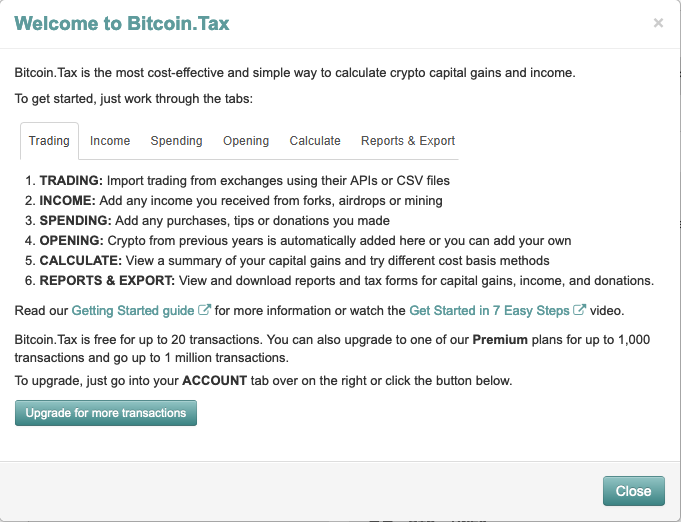
You just have to make sure to supply the data. For trading, Bitcoin Tax offers and easy way to import data from most of the major exchanges. They offer step by step instructions for acquiring the data.
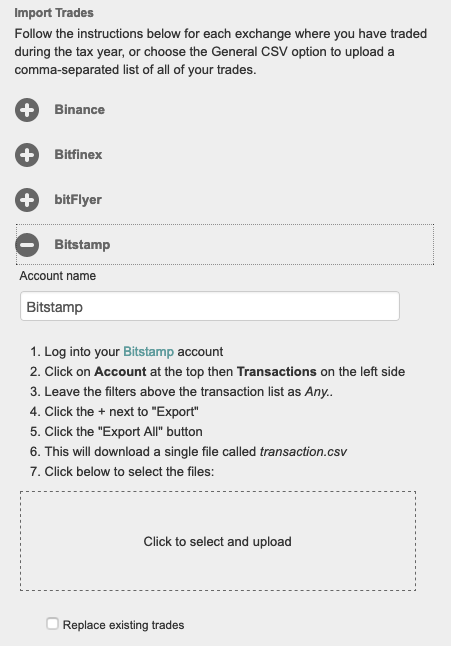
Income, Spending, and Opening can be a little more complicated though. If you’re a regular user of bitcoin, that can be a lot of transactions. Thankfully, there are some options to import that data. Blockonomics has an export feature you can access from the Wallet Watcher.
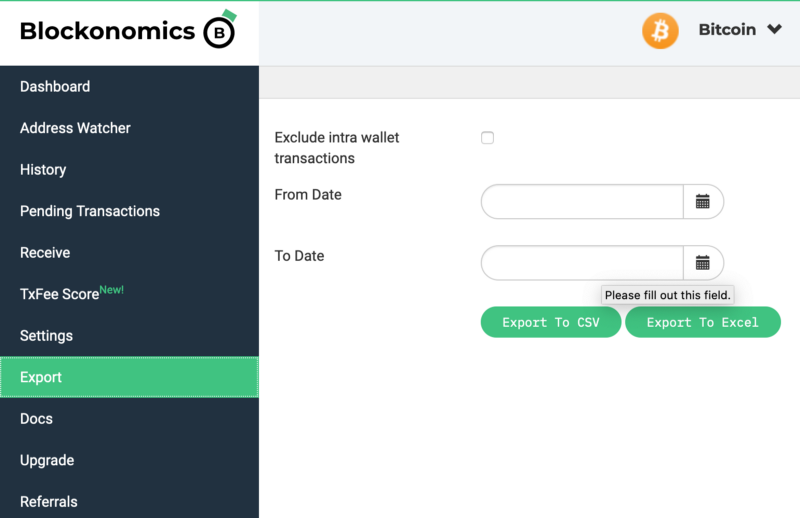
Here’s a video that explains the full Export process:
This will allow you to have the data for your wallets, with them timestamped. The file will be exported as a .csv you can open with Excel. You’ll have to add in some info for Bitcoin Tax, such as a Price column, the price of the Bitcoin when you sent the transaction.

Import that .csv file to Bitcoin Tax, and it will process that data for you. You should do separate files for income, purchases, and what Bitcoin you started the year with for each separate tab. Once that is done, you can go to the Calculate tab to have Bitcoin Tax show your tax options. You’ve got four options to choose which Bitcoin you sold “first.” Sometimes it makes sense to go for the short term taxes instead.

The final tab shows the full report, and allows you to export it to include in your tax documents.
Taxes can be a real pain, especially in the US which has an antiquated system. When dealing with Bitcoin, its an extra pain, because the US government is still trying to figure out the best ways to tax your Bitcoin. Using this guide though, and tools such as Blockonomics, it can be a little bit easier.


![Top 10 Tools and Resources for Crypto Research [2021]](/content/images/size/w720/max/800/1-kDyyUnRCD656bm2ny-jHag.png)

Comments ()